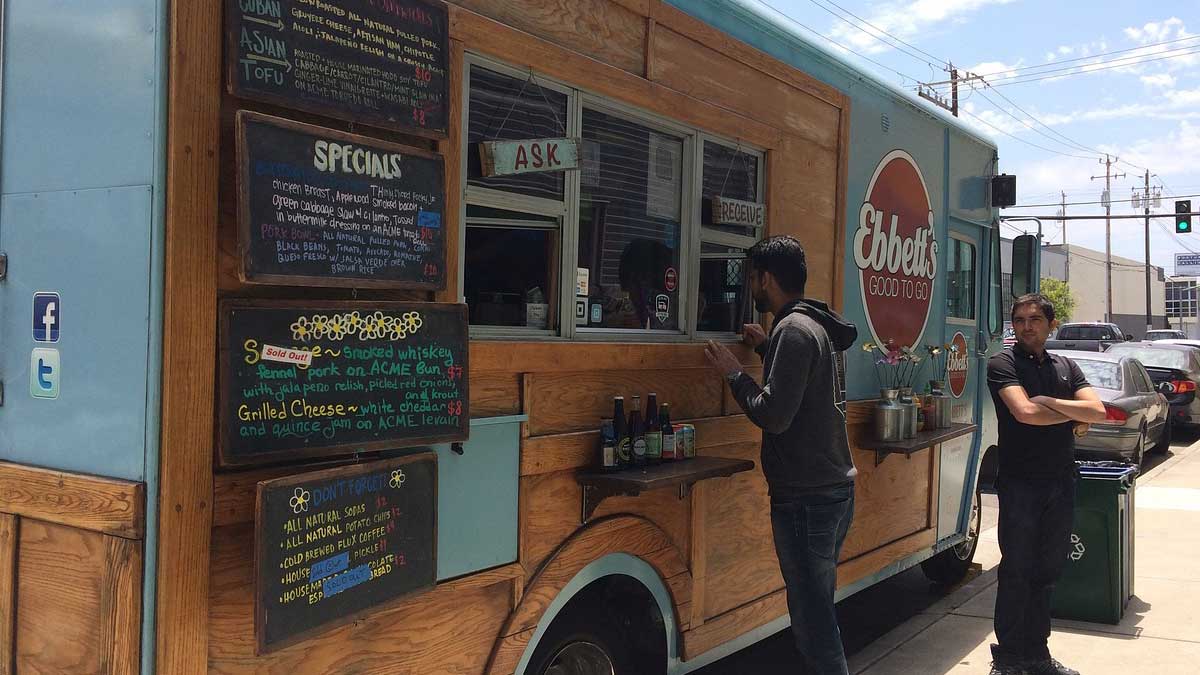Food trucks have steadily carved out a niche in Cookeville’s dining scene, reflecting a broader trend that’s swept across the country. For those considering venturing into this line of business, it’s important to understand the initial investment involved. Some of the reasons this is such an attractive business model include:
- Attractive low startup costs compared to traditional restaurants.
- Flexibility and mobility to go where the customers are.
- Opportunity for creative culinary expression.
- Potential for high profitability with a successful concept and location.
Beyond the buzz and the bustling crowds at spots like Trackside Food Truck Park, lies a roadmap of startup costs that every food truck entrepreneur must navigate. From the price of the truck itself to permits and kitchen equipment, the financial commitment is significant but often matched by the potential for profitability and culinary creativity.
What Is The Average Investment For A Food Truck?
- Average Investment: Starting a food truck business typically requires an average all-in investment of around $100,000, encompassing the truck purchase or lease, equipment, and initial operating costs.
- Major Expenses: The cost of acquiring and outfitting a food truck ranges from $70,000 to $150,000, with the truck itself costing between $20,000 to $100,000 and additional equipment potentially adding $50,000 or more.
- Operational Costs: Beyond the truck, entrepreneurs must budget for permits, licenses, and insurance, which can amount to hundreds to thousands of dollars, plus ongoing costs for inventory, marketing, and social media management.
The average investment for a food truck can vary depending on several factors, such as the type of food you are servicing. However, startup cost typically includes the purchase of the truck, kitchen equipment, permits, licenses, insurance, inventory. That’s not taking into consideration any marketing or social media management costs, which are a necessity in today’s world. With all that said, most experts agree that you need around $100,000 as the startup costs.
Cost Of The Truck
The biggest expense usually goes towards the purchase and/or customization of the truck. A new food truck can cost between $50,000 to $100,000. Used ones are a little cheaper, and you may be able to find one that falls between $20,000 to $40,000. The kitchen equipment can increase these prices by $50,000 or more, depending on the type of menu you are serving and the size of the truck.
Permits, Licenses, And Regulations
Navigating the permits, license, and regulations for food trucks can be complex and frustrating. Especially when you consider that these legal requirements can vary greatly from one state to the next, and even from city to city.
In Tennessee, for example, food truck owners must comply with various rules set by local health departments, and the process for acquiring permits can differ across counties. Expect even more hoops to jump through if you plan on selling liquor from your food truck.
In Tennessee, cities such as Nashville or Cookeville require food truck operators to obtain a Mobile Food Vendor Permit. As well as certification for your vehicle from Metro Fire Department and Metro Health Department. All these requirements can cost hundreds of dollars a year.
Challenges You May Face
Owning and operating a food truck has a certain appeal that can be quite enticing. This can cause people to jump into the industry without proper due diligence, which can then lead to failure. That is why you need to consider all the challenges that you may face when operating a food truck. Weather conditions that affect foot traffic, competition, the economy, parking availability, and the ever-changing demands of consumers are just a few of the challenges you will face when owning your own food truck business.
The reality of the industry is that the failure rate for food trucks is considerably high for many different reasons. The initial investment needed, insufficient marketing strategies, and lack of proper market research are just a few of the most common reasons for failure. With that said, however, there are plenty of success stories in the food truck industry. These stories are typically attributed to proper research, quality of food, and a good social media presence, along with other factors.
Tips For Success
Below you will find a few tips that can help make your food truck business a success. Keep in mind that the following tips are not specific to only the food truck business, but they are tips that new entrepreneurs often overlook when opening their business.
- Unique Concept: Having a niche or a unique concept can help set your food truck apart from the competition.
- Quality and Consistency: Providing high-quality and consistent food ensures customer loyalty.
- Social Media Marketing: Utilizing social media for promotions, updates on locations, and engaging with customers helps in building a dedicated following. This is something that a lot of people overlook when it comes to their business.
- Flexibility and Adaptability: Being able to adapt to changing trends is crucial for sustainability.
While the average investment for a food truck can be rather high, the potential for success is significant if you approach it strategically. Understanding the costs, permits, and regulations involved, as well as being prepared for the challenges and having the ability to adapt to changes are key factors on the survival and success of your food truck.
—
Sources:
- https://cloudkitchens.com/blog/how-much-does-a-food-truck-cost/
- https://squareup.com/us/en/the-bottom-line/operating-your-business/food-truck-cost
- https://pos.toasttab.com/blog/on-the-line/how-much-do-food-trucks-make
- https://www.nashville.gov/departments/parks/permits-rentals-and-reservations/food-trucks
- https://www.nashville.gov/departments/transportation/permits/mobile-food-vendor
